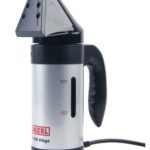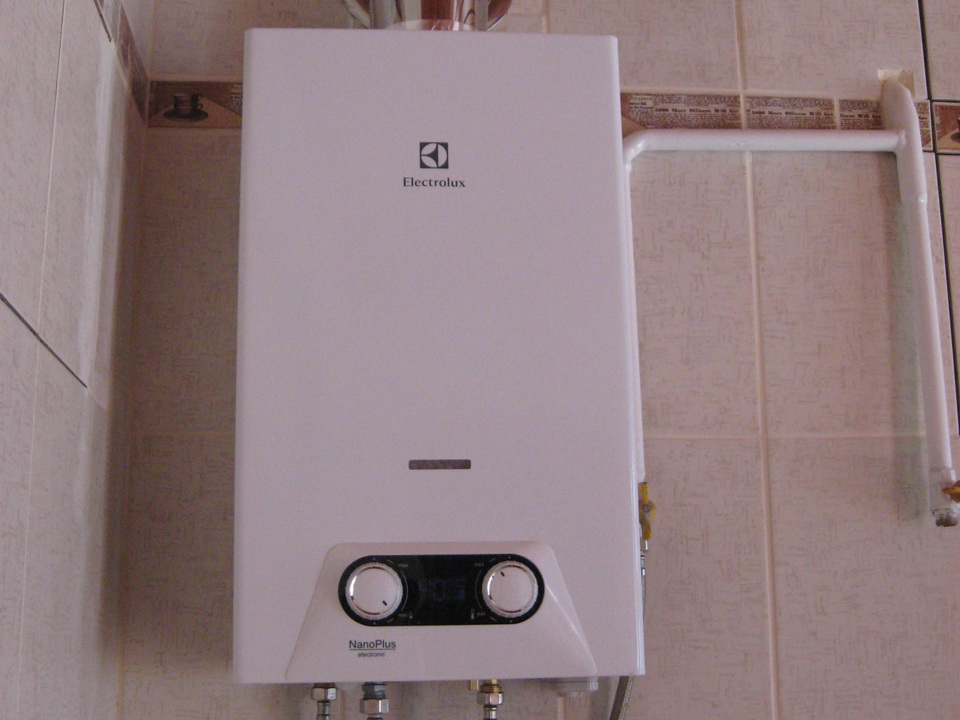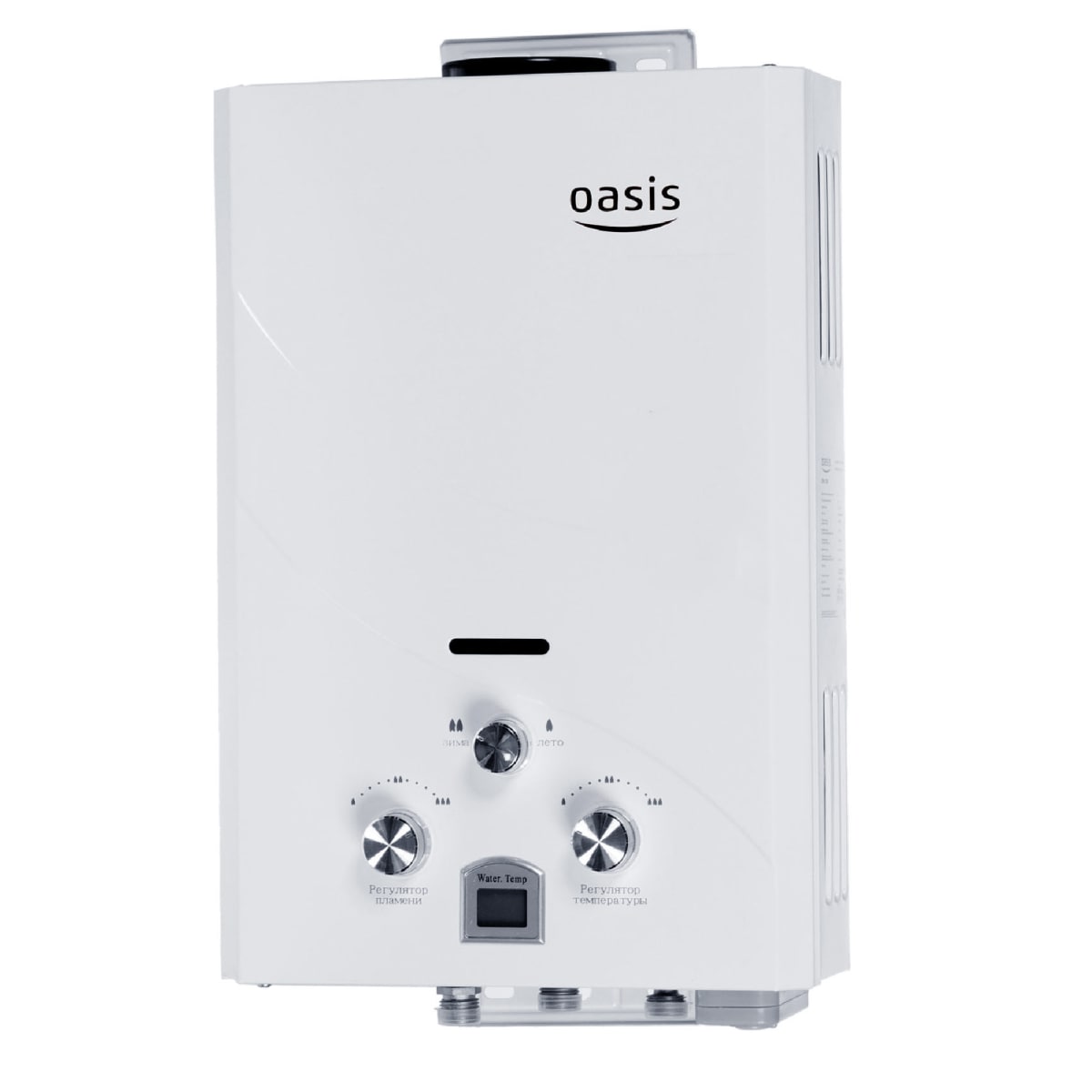Weak pressure of hot water from the gas water heater? Solution
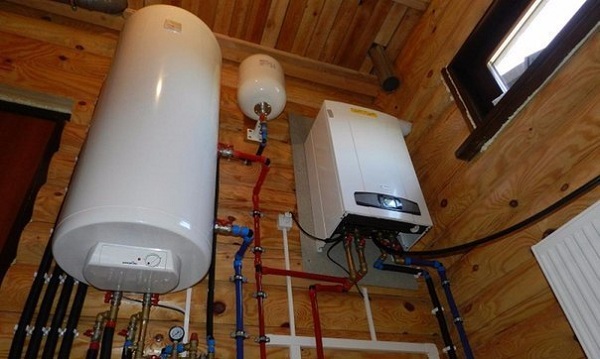
creativecommons.org
So you stepped into the shower and decided to rinse off and refresh your thoughts and body after a hard day at work. But out of nowhere there is a problem - there is no pressure in the gas water heater, and hot water barely flows. What to do?
Believe me, the problem is not difficult and happens in 8 cases of boiler purchase out of 10. Therefore, now we will tell you why there is poor water pressure from a gas water heater and how to fix the problem. And finally take a dip in the shower!
The content of the article
- What determines the water pressure in a gas water heater?
- Poor water pressure through the geyser - clean the blockage with folk remedies
- Why does water flow poorly through the column - or maybe it’s not the problem?
- What rules should you follow to ensure that the water pressure in the gas water heater is always strong?
What determines the water pressure in a gas water heater?
In this section we will look at the most important points that affect the quality water pressure of any heater (not just gas). It just may be that the weak water pressure from the geyser is caused by the device itself, and not by a breakdown:
- Equipment power. To prevent low water pressure from appearing in the gas water heater, you need to buy a device of the appropriate power. It is better to buy a gas water heater ranging from 8 to 10 kW - this is quite enough for a shower and for washing dishes in the kitchen.
- Presence of dirt and debris in connections. Any pipe, not just one for liquid, tends to become clogged. If we are talking about a gas apparatus, then the mesh filter is to blame - it collects all unnecessary waste in front of itself and does not allow it into the system.The result is that the pipe becomes clogged and there is not enough water pressure for the gas water heater.
- Scale is the main enemy of every device that heats water. In a gas boiler, this function is performed by a copper heat exchanger (coil). The hardness of the water determines how much scale will accumulate on the pipe. If your water is clean, like a spring, there should be no problems. Otherwise, this may be the main reason for the low pressure of hot water from the boiler.
- Consequences of repair work on the water supply system. After the pipes are shut off and then the water supply is restored, a pressure surge occurs throughout the house, causing all the debris to fall directly under the faucet. The result is that water flows poorly through the gas water heater. It is worth checking the water supply, and only then the insides of the boiler.
- Preventive measures. Like all types of boiler heaters, gas heaters need to be regularly checked for the presence of scale, debris, burning and other things unnecessary for the functioning of the device. Everything cleans up and the burner works like new. And stagnation in thorough cleaning can bring a small pressure of hot water from the water heater.
Poor water pressure through the geyser - clean the blockage with folk remedies
If your drain isn't working as well as it used to, there's most likely a hefty clog. Many people don’t know how to fix it, so they simply tolerate the weak pressure of hot water from the gas water heater. Of course, it never hurts to contact a specialist. But where can I get an extra couple of thousand? That's why we will fix the problem ourselves.
You can wash the gas burner with a solution to remove limescale. If you can’t find one in stores, then there is a popular alternative - a solution of citric acid.The entire procedure must be carried out extremely carefully so as not to damage the connections of the gas boiler.
How to clean the column yourself from blockages:
- Preparatory stage: close the gas supply and water supply, disconnect all wires and drain the remaining liquid through a valve or tap under hot water.
- Clean the mesh filter. It is located right at the beginning of the cold water inlet, in front of the gas heater. You can simply rinse it under water or use a lemon solution if there is a lot of limestone.
- During cleaning, we check the membrane. If there are cracks on it, this may be another factor in the poor pressure of hot water from the gas water heater. We replace the membrane with a new one through threaded connections. There is no need to really explain anything: what you see near the membrane is what you twist.
- Remove the copper coil. If the thread does not respond to the pressure of the wrench, lubricate the problem area with a universal cleaner, oil or other rust remover. After 10-20 minutes, unscrew the heating element.
- Next, the copper pipe is soaked in a previously prepared solution: a pack of acid per liter of water. The product is poured into the tube and lasts for about 10-12 hours.
- Then we pull out the heat exchanger, rinse it with clean water and put it in place. Check the integrity of the rubber gaskets - you can install new ones if the old ones are worn out. And in general - it’s better to insert new ones.
- We check the water supply by unscrewing the taps.
- The tightness of all connections can be checked with soap and water: air bubbles will begin to bubble at the hole site. Such a place needs to be additionally tightened with a wrench or lubricated with silicone sealant.
- That's it, the job is finished! We connect the gas heater and use it!
If weak water pressure through a gas water heater constantly bothers you, the procedure is carried out regularly.And according to the standard - at least once a year. Citric acid is an inexpensive and effective repair option when the hot water pressure in the gas water heater is lost due to blockage or scale on the pipes.
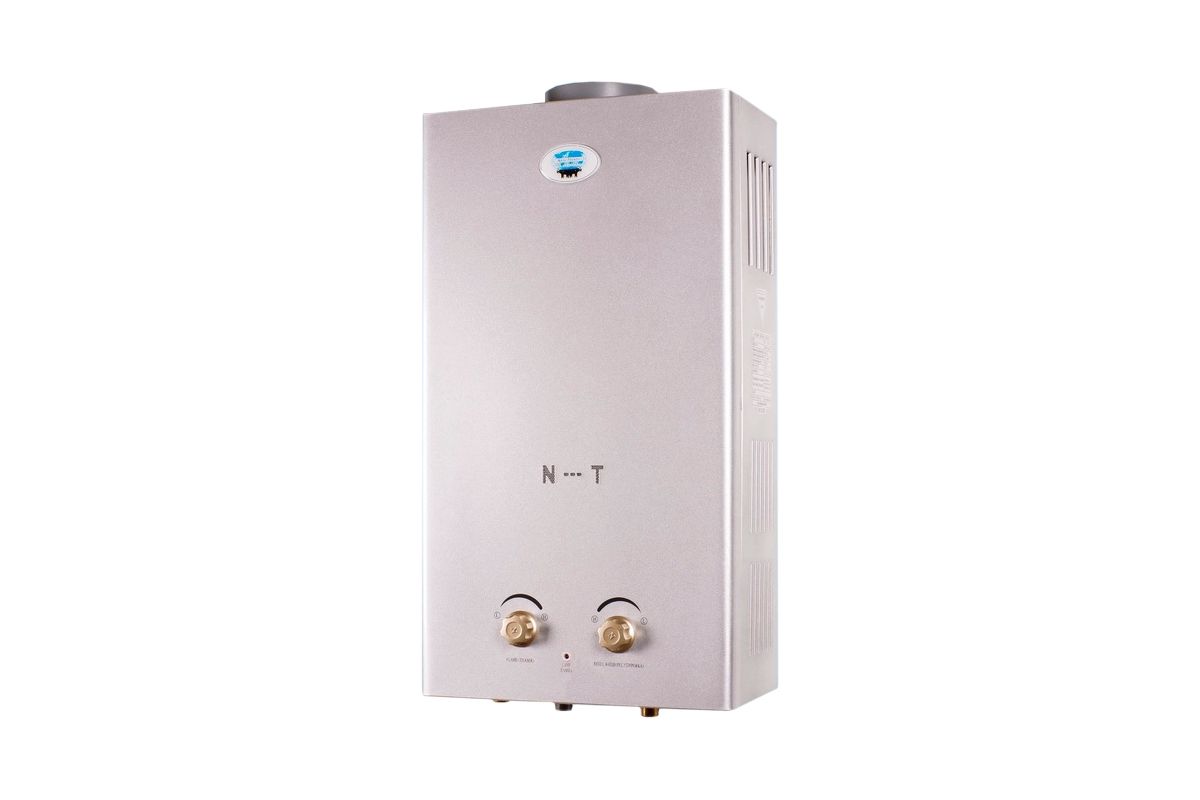
creativecommons.org
Why does water flow poorly through the column - or maybe it’s not the problem?
A weak water flow may not always indicate a direct breakdown of your heating device. Most often, debris accumulates in front of the faucet and prevents water from flowing properly. The problem appears on the faucet filter, rubber hose or other parts of the plumbing system.
To fix the problem, disassemble the parts of the faucet where the fluid flows and remove any debris.
If hot water flows normally in the kitchen, but poorly in the bathroom (or vice versa), then the problem is definitely in the faucet filter. It must be removed and washed under running water. If the problem affects you often (or literally every month), replace the filter more often or wash it.
Also, due to the constant high temperature of the burner, rubber gaskets may tear. A distorted part will take up part of the pipe space and prevent water from flowing normally. Find the location of the breakdown and replace the rubber insert.
What rules should you follow to ensure that the water pressure in the gas water heater is always strong?
In order not to constantly run to the store for citric acid or not to wash the spare parts of the boiler by disassembling it into atoms, you should follow simple operating rules.
It’s better to know the problem head on and not let it happen than to spend money on repair supplies or a new boiler.
What can and should be done now:
- Take a bath or shower with a water temperature of no more than +40 °C.This indicator is good for the body (it’s not too cold), and excess scale will not form.
- For a washbasin or washing dishes, 45-50 °C is sufficient. The water is comfortable for your hands, and the grease on the plates can be washed off.
- A washing machine will need a temperature of 45-50 °C. If things are very dirty, add about +5 °C.
This temperature was chosen for a reason. This is because lime deposits appear at temperatures up to +80 Celsius. Scale is deposited even on perfectly clean surfaces, and the boiler begins to “hurt”.
To prevent this from happening, keep an eye on your household appliances. All the best to you and have a great day!

